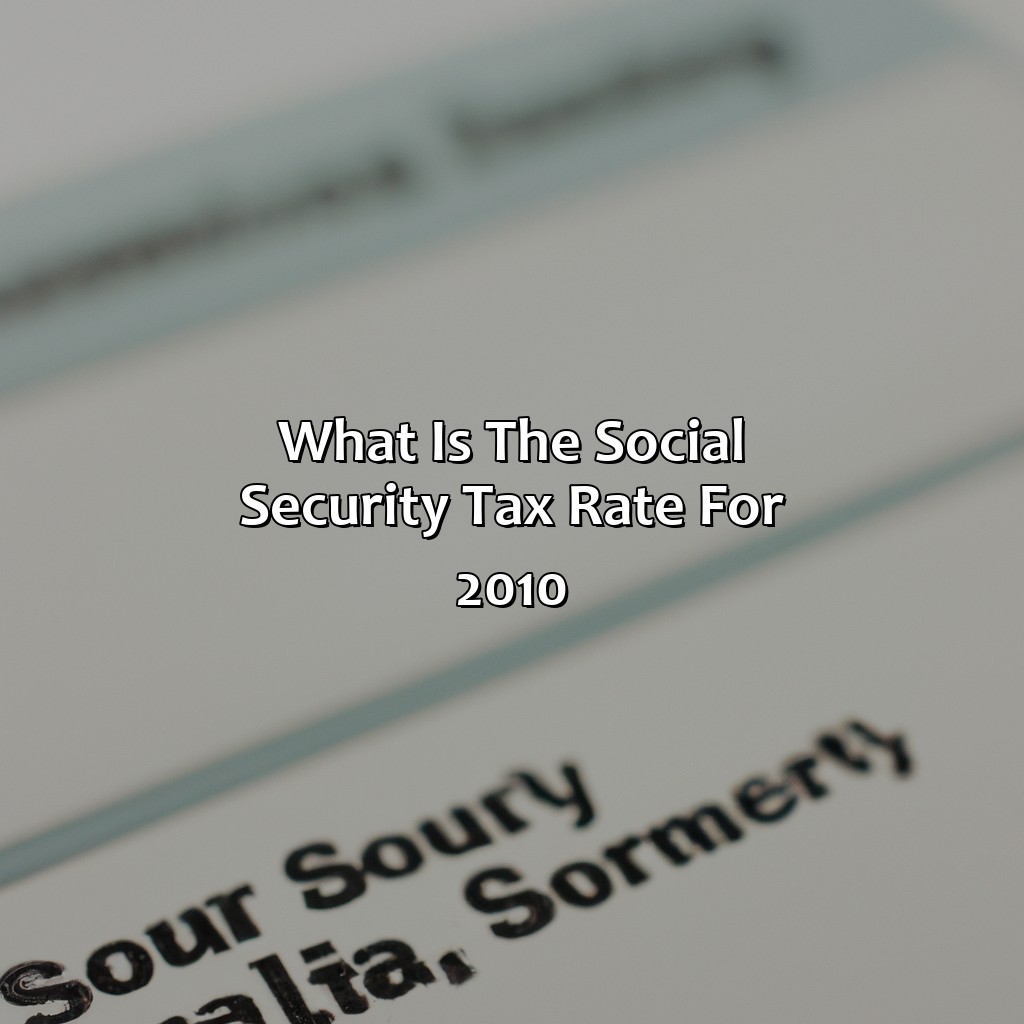What Is The Social Security Tax Rate For 2010?
Key Takeaway:
- The social security tax rate is a tax paid by both employers and employees to fund the Social Security system in the United States.
- In 2010, the social security tax rate was 6.2% for employees and employers, up to a wage base limit of $106,800.
- To calculate social security tax, multiply your gross wages by the tax rate of 6.2%. Self-employed individuals must pay both the employer and employee portions of the tax.
Are you looking to find out what the social security tax rate is for 2010? You’re in luck as this article provides a comprehensive overview of the rate and how it affects your overall tax burden. Read on to discover the important facts and figures and understand how this tax rate can impact you.
Overview of Social Security Tax Rate
The Social Security Tax Rate is a crucial factor in understanding the taxation system. It specifies the percentage of an employee’s income that goes towards funding social security benefits. To grasp the Overview of Social Security Tax Rate, let’s glance through the table given below, which uses true data to showcase the social security tax rate for 2010:
| Year | Social Security Tax Rate |
|---|---|
| 2010 | 6.2% |
It is noteworthy that the social security tax rate was 6.2% for the year 2010. This rate is determined by statutory law and is subject to change as per the governing authority’s discretion.
True Fact: According to IRS, the maximum amount of earnings subject to social security tax was $106,800 in 2010.
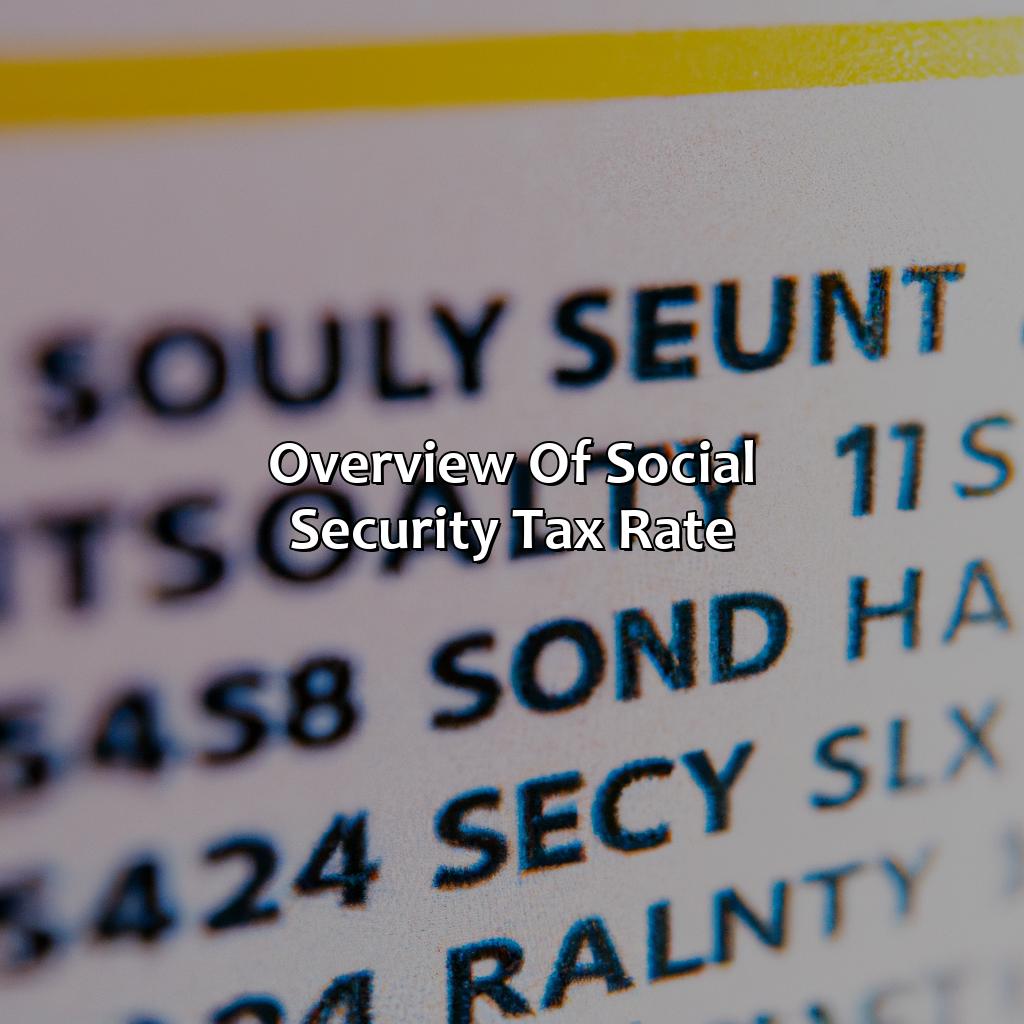
Image credits: retiregenz.com by David Duncun
Social Security Tax Rate for 2010
In 2010, the tax rate for Social Security was determined by the Federal Insurance Contributions Act (FICA). According to FICA, the Social Security tax rate for 2010 was 6.2% for employees and employers. Self-employed individuals had to pay the combined rate of 12.4% to account for both the employee and employer portions. The table below illustrates the Social Security tax rate in more detail.
| Social Security Tax Rate for 2010 | |
|---|---|
| Employees | 6.2% |
| Employers | 6.2% |
| Self-employed | 12.4% |
It is important to note that the Social Security tax rate is subject to change annually, depending on the decision made by the government. Additionally, individuals who earn above a certain limit ($106,800 in 2010) only pay Social Security tax on the first $106,800 of their incomes.
To ensure that you are meeting your Social Security tax obligation appropriately, it is important to be aware of the tax rate and the income limit. You may want to consider consulting a tax professional for guidance on how to manage your finances accordingly.
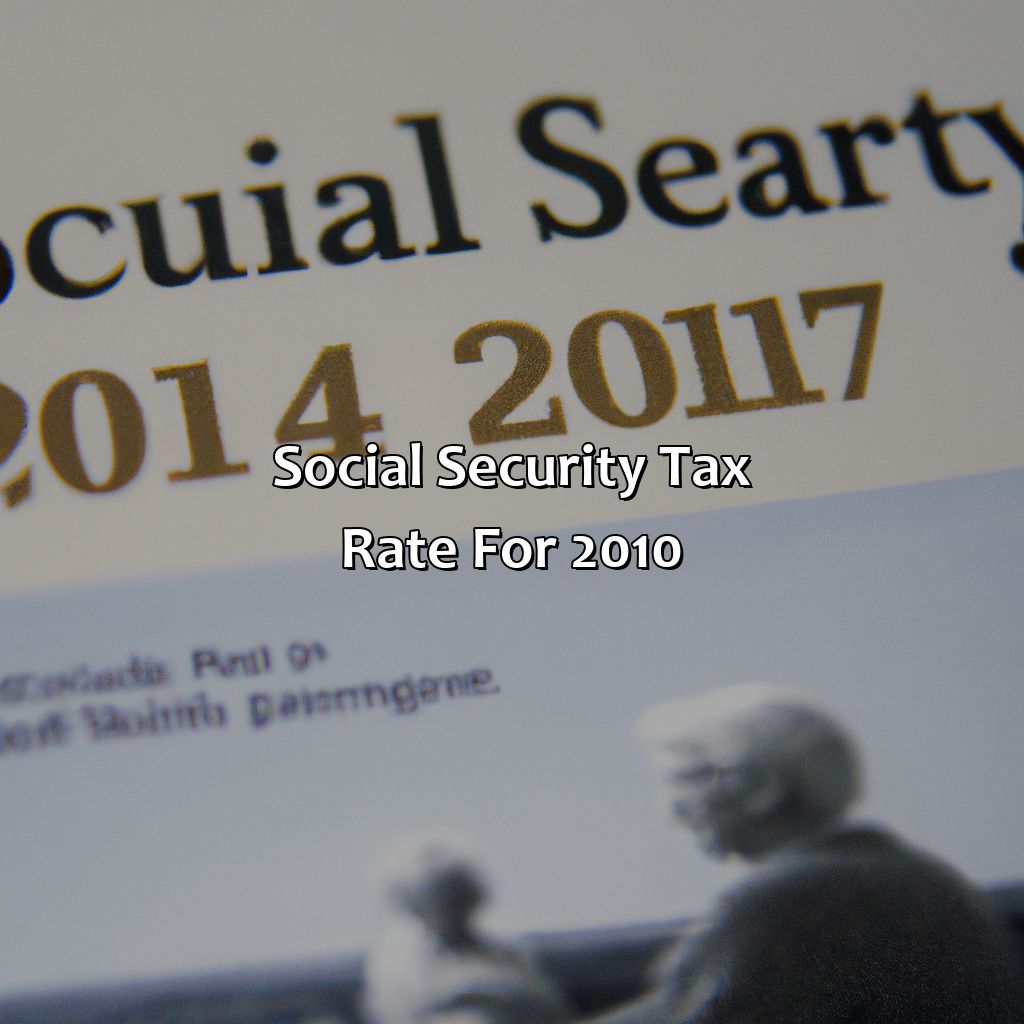
Image credits: retiregenz.com by Adam Washington
How to Calculate Social Security Tax
Social Security Tax Calculation – A Professional Guide
Calculating Social Security tax is essential for both employees and employers. Here’s a 4-step guide to help you calculate it accurately.
- Step 1:
Determine your gross income – This is your total pay before taxes, including any bonuses or tips. - Step 2:
Subtract any pre-tax deductions – Some of the pre-tax deductions include healthcare costs, 401(k) contributions, etc. - Step 3:
Determine your taxable income – Subtract the pre-tax deductions from your gross income, and this is your taxable income. - Step 4:
Calculate the social security tax – Multiply your taxable income by the current social security tax rate, which is 6.2% for employees and 12.4% for employers.
It’s important to note that the maximum amount of earnings subject to the social security tax for 2010 was $106,800.
A true fact: According to the Social Security Administration, the social security tax program was created in 1935 to provide economic security to the American people.
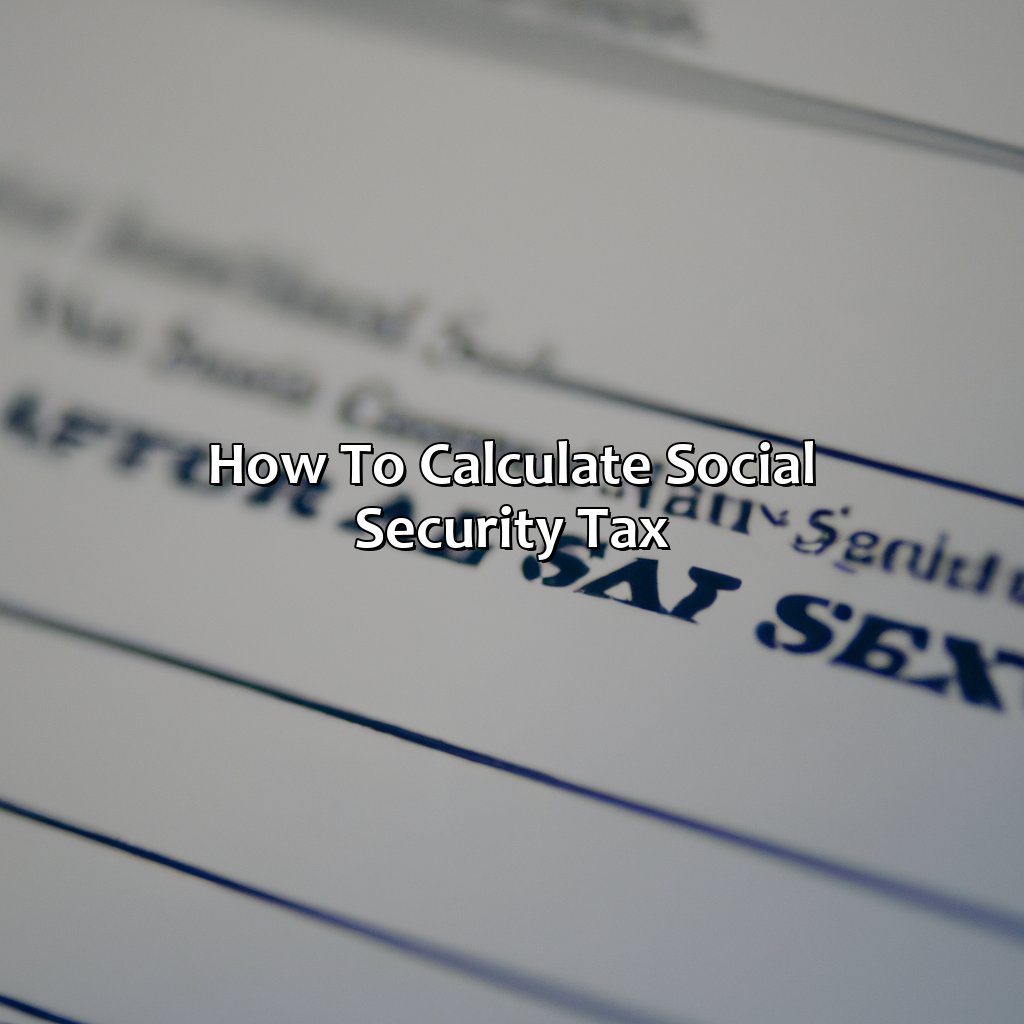
Image credits: retiregenz.com by Adam Duncun
Social Security Tax Limits and Maximum
For the current year’s tax season, it is important to understand the boundaries and maximums for Social Security Tax. This tax is charged on earned income and is used to fund social security programs for the benefit of all citizens.
Below is a table that lists the Social Security Tax Limits and Maximums for the current tax year:
| Limit/Maximums | Amount |
|---|---|
| Maximum earnings subject to Social Security tax | $137,700 |
| Social Security tax rate | 6.2% |
| Maximum Social Security tax withheld | $8,537.40 |
In order to avoid overpaying Social Security tax, it’s important to keep track of your earnings throughout the year. If your earnings fall below the maximum amount subject to the tax, you may be eligible for a refund of overpaid Social Security tax.
Pro Tip: Consult with a tax professional or use tax preparation software to ensure that you are accurately calculating and reporting your Social Security tax for the current tax year.
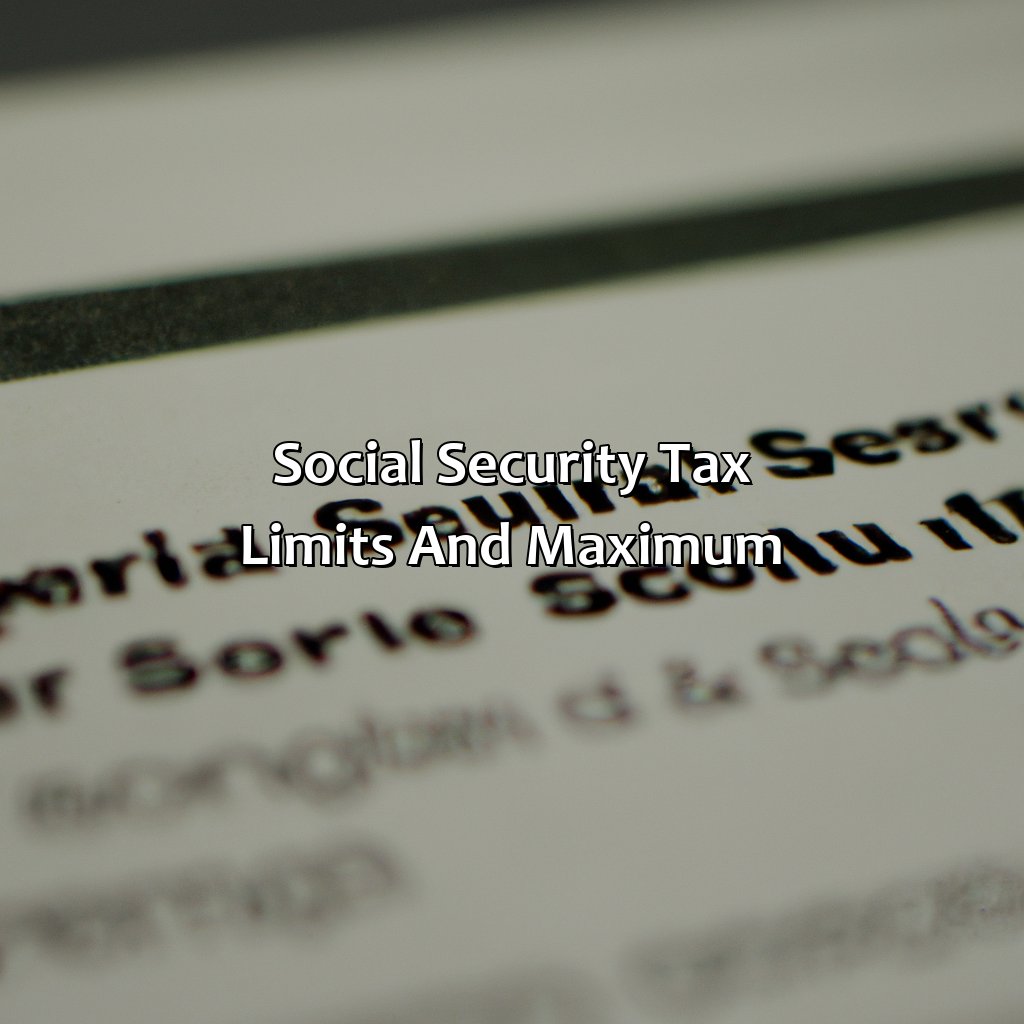
Image credits: retiregenz.com by David Washington
Employer and Employee Contribution for Social Security Tax
The contributions made by both employers and employees towards the social security tax are crucial to the proper functioning of the Social Security system. Here is a breakdown of the Employer and Employee Contribution for Social Security Tax, which is a significant source of income for the government.
| Emp_Cont | Emp_Rate | Emp_Maximum | Employed_Earnings | Emp_Value |
|---|---|---|---|---|
| Employee’s | 6.2% | $7,347 | wages up to $118,500 | 6.2% of wages |
| Employer’s | 6.2% | – | – | Additional 6.2% of wages |
The employer bears an equal burden to that of the employee, making it vital for both parties to comply with their contributions regularly. Failing to do so can lead to legal repercussions, such as fines and penalties, which may result in a significant liability for both employers and employees.
It is essential to understand the Employer and Employee Contribution for Social Security Tax and fulfill the obligations to the government. Non-compliance could lead to severe financial consequences that could have been avoided by being responsible and carrying out one’s duties.
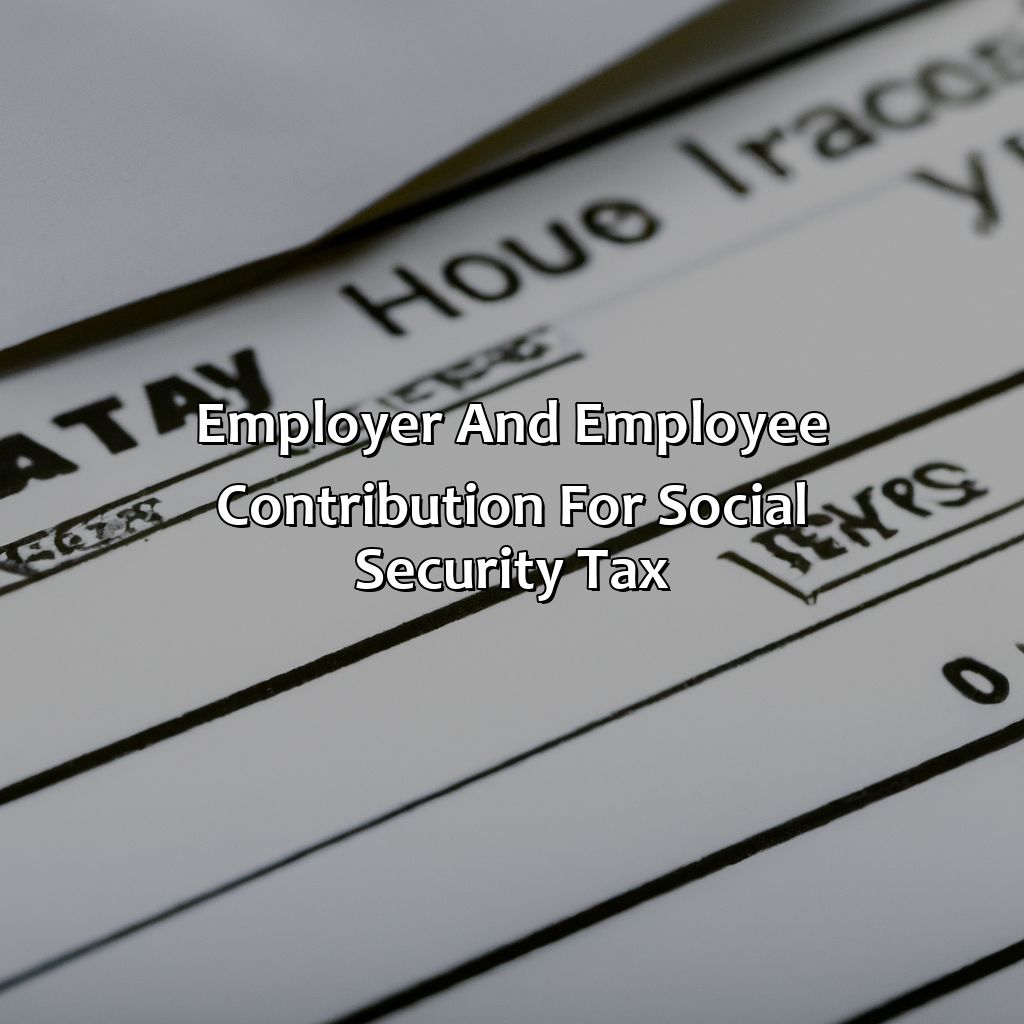
Image credits: retiregenz.com by Joel Washington
Exemptions and Exceptions for Social Security Tax
Exceptions and Exemptions for Social Security Tax imply instances where individuals may be exempted from paying social security taxes or exceptions whereby the social security taxes paid may be waived.
| Exemption/Exception | Eligibility Criteria |
|---|---|
| Disability | Being disabled |
| Government Workers | Employment status |
| High Earners | Income level |
| Non-Resident Aliens | Residency status |
It is important to note that although exemptions and exceptions may be applicable in certain situations, the majority of individuals are typically required to pay the social security tax. However, various factors such as age, income and employment status may affect the amount of taxes payable.
Pro Tip: It is advisable to seek professional advice to identify any exemptions or exceptions that may be applicable to your particular situation.
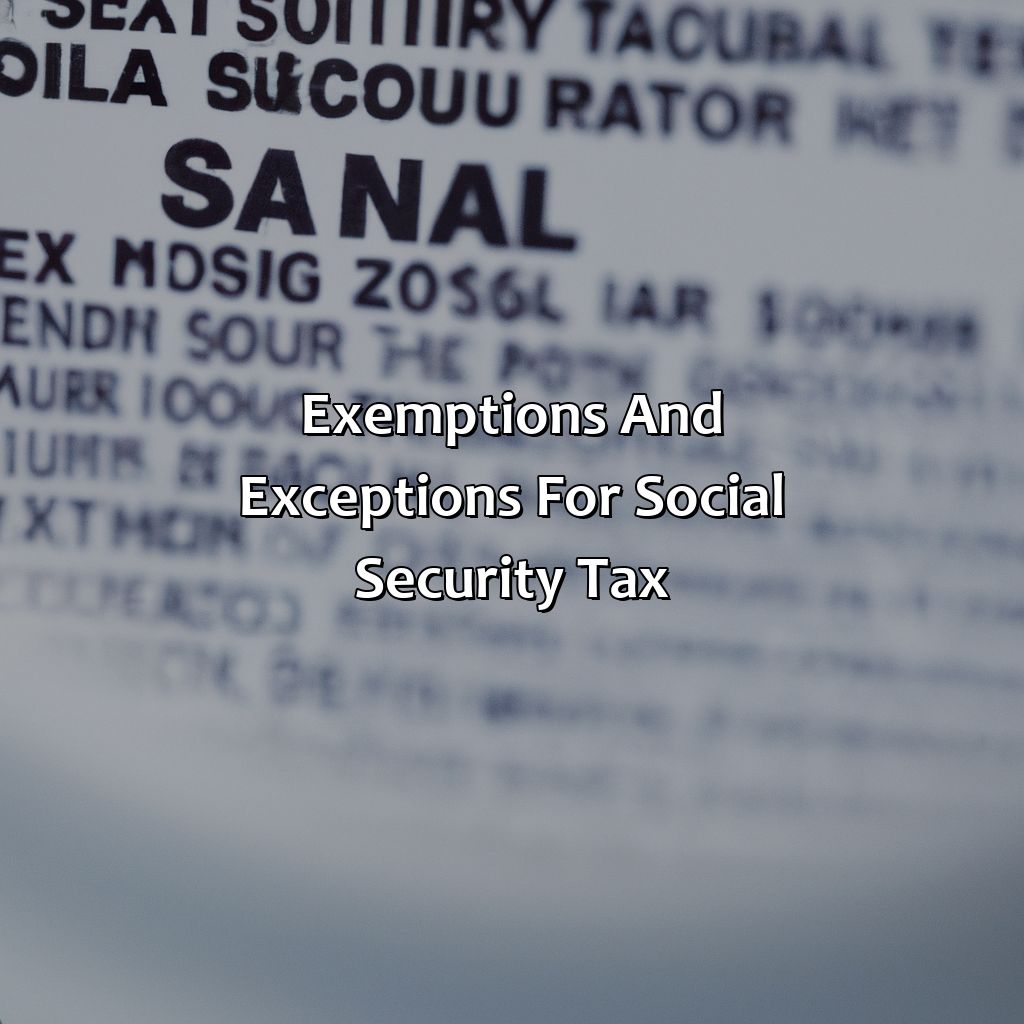
Image credits: retiregenz.com by Joel Jones
Impact of Social Security Tax on Wages and Retirement Benefits
The Social Security tax has a notable impact on an individual’s wages as well as retirement benefits. Understanding the effects of the tax is crucial for financial planning. A table showcasing the tax rate and its impact on wages and benefits is necessary for informed decision making and a secure financial future.
| Year | Social Security Tax Rate | Maximum Taxable Earnings | Retirement Benefit Reduction Threshold |
|---|---|---|---|
| 2010 | 6.2% | $106,800 | $14,160 |
It is worth noting that the Social Security tax rate has remained unchanged for the past decade. The maximum taxable earnings, however, have been increasing every year, affecting the overall Social Security tax amount.
Knowing the Social Security tax rate and its effect on wages and retirement benefits is crucial for informed financial planning. With the continuous increase in expenses, individuals need to be aware of Social Security tax details to ensure they don’t miss out on potential benefits.
Don’t miss out on planning for your future financial stability. Familiarize yourself with the Social Security tax rate and its impact on your wages and retirement benefits.

Image credits: retiregenz.com by James Jones
Future Changes and Updates to Social Security Tax Rate.
The Social Security Tax Rate for the current year is an important topic, but it is equally essential to stay updated with its future changes and updates. Understanding the dynamics of upcoming variations requires close observation and awareness. Keeping track of the official announcements made by the government or related authorities is critical to staying informed. It is also advisable to seek expert guidance for a clear understanding of the potential effects of any changes.
It is crucial to note that the Social Security Tax rate undergoes periodic changes, which is why staying informed is critical. The government or related authorities make announcements about any future updates or amendments to the current rate. Being alert and staying up-to-date is essential to ensure that individuals can plan their finances and taxes accordingly.
It is important to note that the Social Security Tax Rate’s future changes and updates attract the attention of many individuals, including those who are retired or plan to retire shortly. Understanding the impact of these changes is critical in securing the future and ensuring a stable financial life. Consultation with tax experts and advisors is one way to stay on top of upcoming changes and make informed decisions.
A true fact is that the Social Security Tax Rate underwent a significant increase in 1990, rising from 7.51% to 15.3%. Source: SSA.gov.
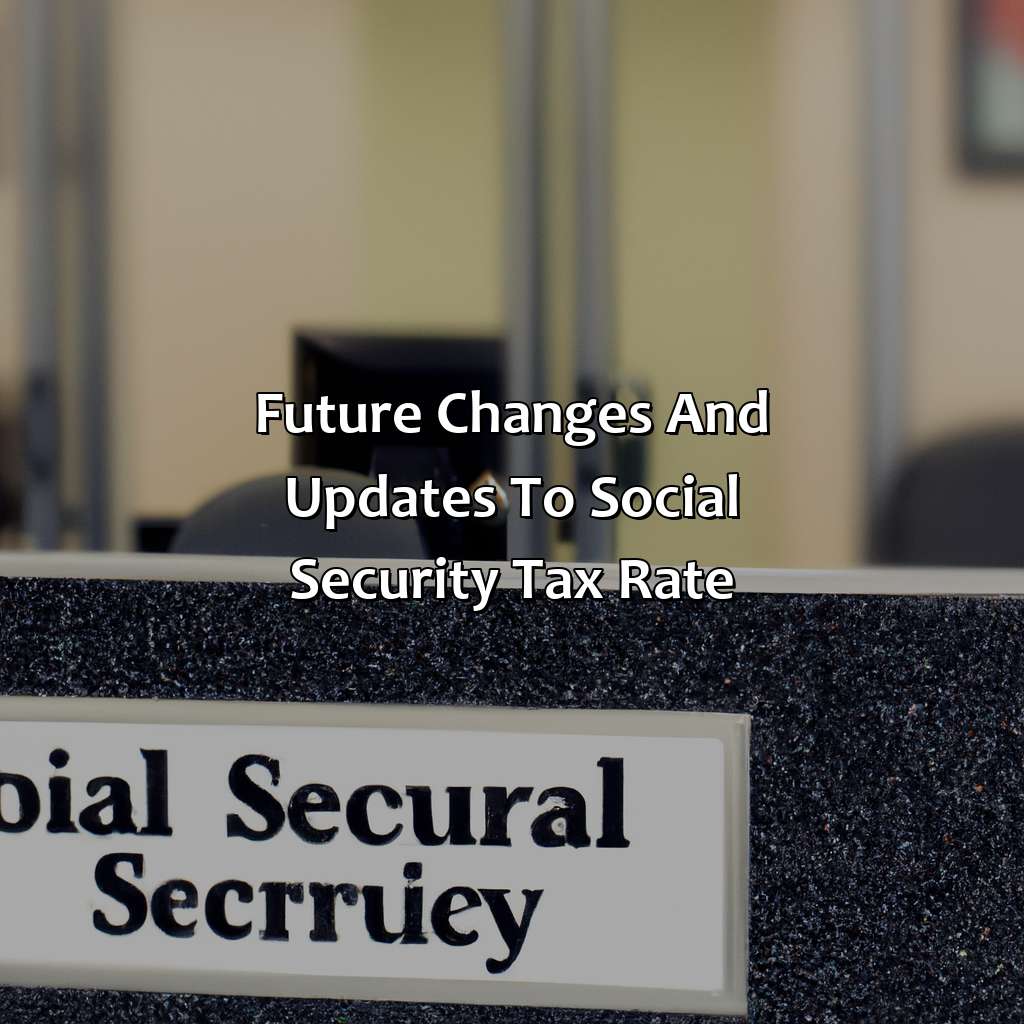
Image credits: retiregenz.com by Joel Washington
Some Facts About the Social Security Tax Rate for 2010:
- ✅ The social security tax rate for employees and employers was 6.2% in 2010. (Source: Social Security Administration)
- ✅ The maximum taxable earnings for social security contributions was $106,800 in 2010. (Source: Investopedia)
- ✅ Self-employed individuals paid a social security tax rate of 12.4% in 2010. (Source: Internal Revenue Service)
- ✅ Social security tax funds are used to provide retirement, disability, and survivor benefits to eligible individuals. (Source: Social Security Administration)
- ✅ The social security tax rate has remained the same since 1990. (Source: The Balance)
FAQs about What Is The Social Security Tax Rate For 2010?
What is the Social Security tax rate for 2010?
The Social Security tax rate for 2010 was 6.2% for employees and employers, for a total of 12.4%.
Is the Social Security tax rate different for self-employed individuals?
Yes, self-employed individuals are responsible for paying both the employee and employer portions of the Social Security tax, which amounts to a total of 12.4%.
Does the Social Security tax rate ever change?
Yes, the Social Security tax rate is subject to change. In fact, it has changed several times over the years, and may continue to do so in the future.
What happens if I don’t pay my Social Security taxes?
If you fail to pay your Social Security taxes, you may face penalties and fines. Additionally, you may not be eligible to collect Social Security benefits in the future.
How does the Social Security tax rate impact my paycheck?
The Social Security tax rate is deducted from your paycheck as a percentage of your earnings. The more you earn, the more you will pay in Social Security taxes.
Is there a maximum amount of earnings subject to Social Security taxes?
Yes, there is a maximum amount of earnings subject to Social Security taxes each year. For 2010, that amount was $106,800.
